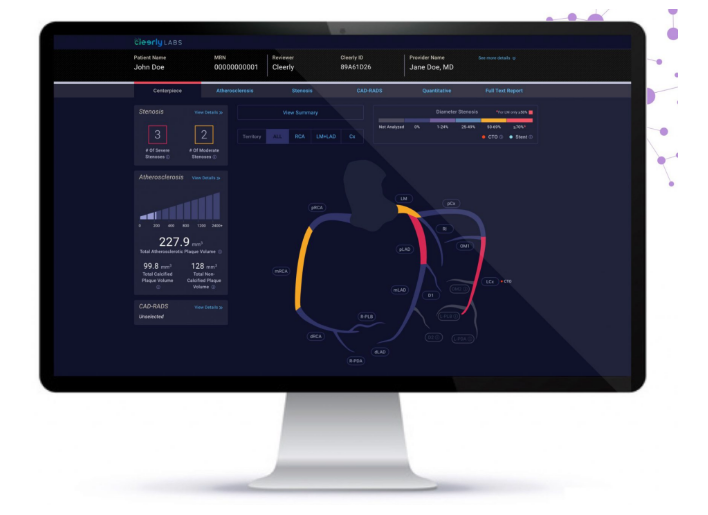Cardiovascular disease is a leading cause of death worldwide, and early screening is crucial. Cleerly uses artificial intelligence technology to analyze cardiac CT scan images, aiming to detect early signs of coronary artery disease in advance and bring new hope for the prevention and treatment of heart disease. This technology has the potential to change the way heart disease screening is performed around the world and benefit millions of patients. Its AI-based screening method promises to go beyond traditional blood pressure and cholesterol tests to provide a more accurate risk assessment.
Recently, cardiovascular imaging startup Cleerly is using artificial intelligence (AI) technology to detect potential heart disease risks in advance. The company uses AI to analyze cardiac CT scan images to identify early signs of coronary artery disease, similar to X-rays and colonoscopies in breast and colon cancer screening.
“Most people who die from heart disease never show any symptoms before developing the disease,” said James Min, a cardiologist and founder of Cleerly, who originated the idea. Clinical program at NewYork-Presbyterian Hospital/Weill Cornell Medicine founded in 2003.
Cleerly is currently conducting a large-scale, multi-year clinical trial designed to prove that its AI screening method can more accurately identify heart disease risk in asymptomatic people than traditional blood pressure and cholesterol tests. If it successfully passes regulatory approval, the company is expected to conduct large-scale screening globally, which will significantly expand its market share and bring considerable revenue to the company.

Image source:Cleerly
In order to promote the further development of technology, Cleerly recently announced the completion of a US$106 million Series C financing, led by Insight Partners and followed by Battery Ventures. More than two years ago, the company raised $223 million. While funding delays are often a sign that a startup is failing to meet expectations, Insight Partners managing director Scott Barclay said Cleerly's rapid growth gives it enough capital to support future expansion and multi-site clinical trials. test.
James Ming added that while additional funding is not necessarily required, Cleerly is pleased to enter into a partnership with Insight Partners, one of the world's largest investors in enterprise software. The company is awaiting full FDA approval for its heart screening algorithm, but its algorithm is approved for use in diagnosing symptomatic patients, and in October, Medicare approved coverage of its plaque analysis test. Plaque buildup is a common cause of heart attacks.
Cleerly's AI analysis technology is less burdensome and equally effective than traditional stress tests and coronary angiography. This advantage has been recognized by health insurance companies and has been included in medical insurance. Since the company was founded, its compound annual growth rate has exceeded 100%. Currently, Cleerly's technology has been widely promoted in commercial applications and is expected to help approximately 15 million heart disease patients.
Although Cleerly faces competitors such as HeartFlow and Elucid, given the huge potential of the heart disease screening market, there may not be just one winner in this space. Cleerly's success could revolutionize heart disease screening worldwide.
Cleerly's success lies not only in the innovation of its technology, but also in its precise grasp of market demand and the effectiveness of its commercial operations. In the future, as the technology continues to mature and the market continues to expand, Cleerly is expected to bring hope to more heart disease patients around the world.